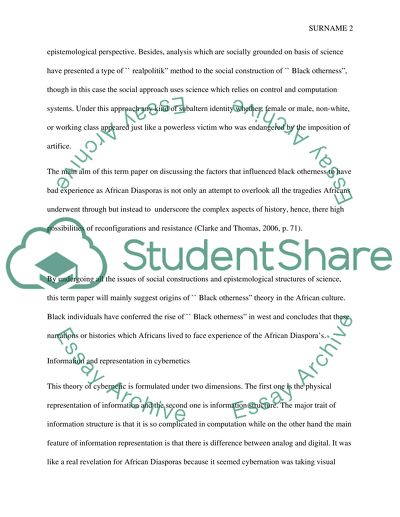Cite this document
(“Ways in black otherness has influenced the experiences of the African Term Paper”, n.d.)
Ways in black otherness has influenced the experiences of the African Term Paper. Retrieved from https://studentshare.org/sociology/1624788-ways-in-black-otherness-has-influenced-the-experiences-of-the-african-diaspora-according-to-the-readings-in-clarke-and-thomass-text
Ways in black otherness has influenced the experiences of the African Term Paper. Retrieved from https://studentshare.org/sociology/1624788-ways-in-black-otherness-has-influenced-the-experiences-of-the-african-diaspora-according-to-the-readings-in-clarke-and-thomass-text
(Ways in Black Otherness Has Influenced the Experiences of the African Term Paper)
Ways in Black Otherness Has Influenced the Experiences of the African Term Paper. https://studentshare.org/sociology/1624788-ways-in-black-otherness-has-influenced-the-experiences-of-the-african-diaspora-according-to-the-readings-in-clarke-and-thomass-text.
Ways in Black Otherness Has Influenced the Experiences of the African Term Paper. https://studentshare.org/sociology/1624788-ways-in-black-otherness-has-influenced-the-experiences-of-the-african-diaspora-according-to-the-readings-in-clarke-and-thomass-text.
“Ways in Black Otherness Has Influenced the Experiences of the African Term Paper”, n.d. https://studentshare.org/sociology/1624788-ways-in-black-otherness-has-influenced-the-experiences-of-the-african-diaspora-according-to-the-readings-in-clarke-and-thomass-text.


